Why These Women Came Out To Protest Ireland’s Abortion Law On International Women’s Day
14 women in Dublin on why they decided to leave work, skip school, and strike for their reproductive choices.
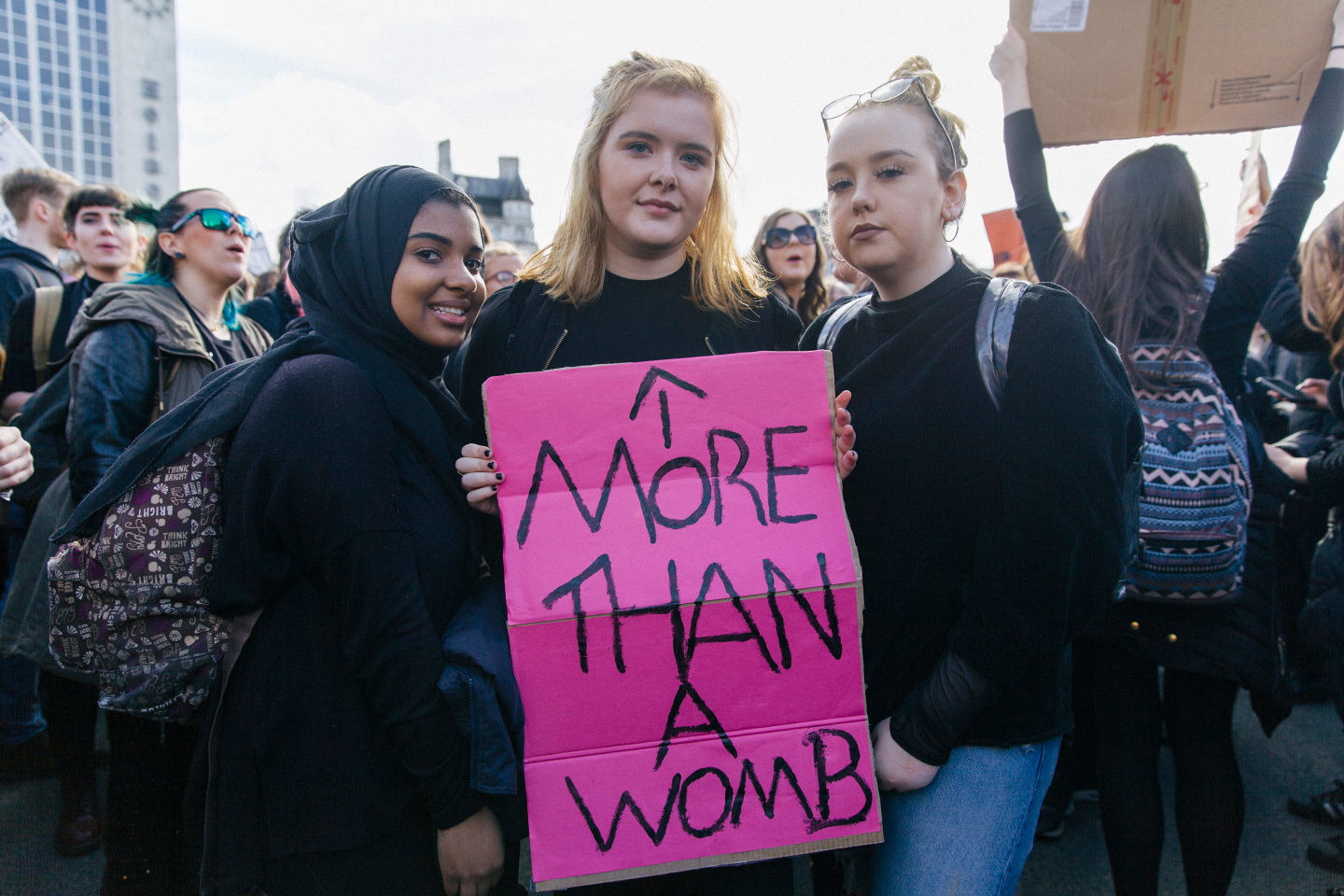 From left, Ahlam Ahmed, Jordan Kane, and Bess O'Connell attend the Strike 4 Repeal march in Dublin, Ireland, on March 8 2017
From left, Ahlam Ahmed, Jordan Kane, and Bess O'Connell attend the Strike 4 Repeal march in Dublin, Ireland, on March 8 2017
Ireland has one of the world’s most restrictive abortion laws. The Eighth Amendment, which was added to the Irish constitution in 1983, grants “personhood” to an embryo or fetus, effectively placing it on an equal level to the life of a pregnant woman herself. Abortion is currently technically legal in Ireland when “there is a real and substantial risk to the life of the mother.” But the medical community are afraid of giving legal abortions, or can be protected when they don't give them because of the Eighth Amendment — as seen in the tragic case of Savita Halappanavar, who was denied a life-saving abortion in 2012.
Pro-choice activists are demanding the Irish government to call a referendum to repeal this Amendment, which would then pave the way for full legalization to protect pregnant women. On International Women’s Day this year, March 8, the newly formed group Strike 4 Repeal called for a full strike of both domestic and commercial work in Ireland, and asked people to wear black to show their support. In the country’s capital of Dublin, thousands of people marched outside key government buildings. They packed out the city’s main bridge, brought traffic to a standstill, and demanded to be heard. The FADER spoke to some of these women about why they decided to leave work, skip school, and strike for their reproductive choices.
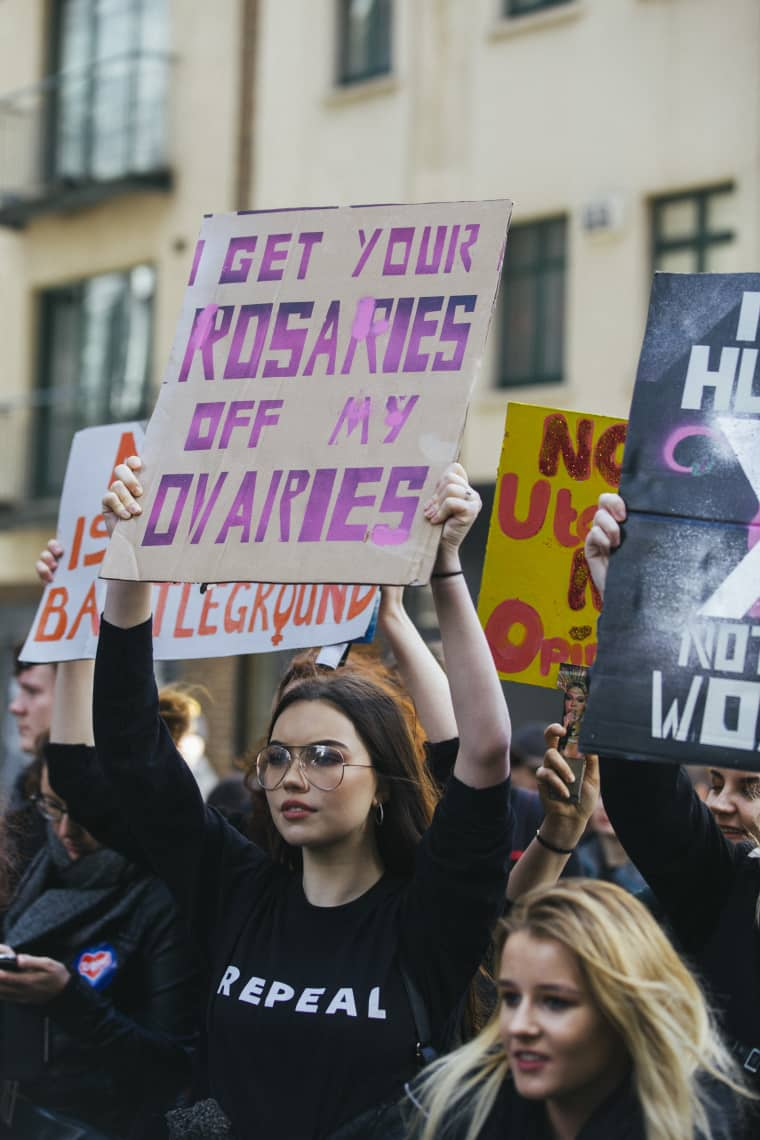 Protesters at the Strike 4 Repeal march in Dublin, Ireland, on March 8 2017
Protesters at the Strike 4 Repeal march in Dublin, Ireland, on March 8 2017

Filomena Kaguako, 26
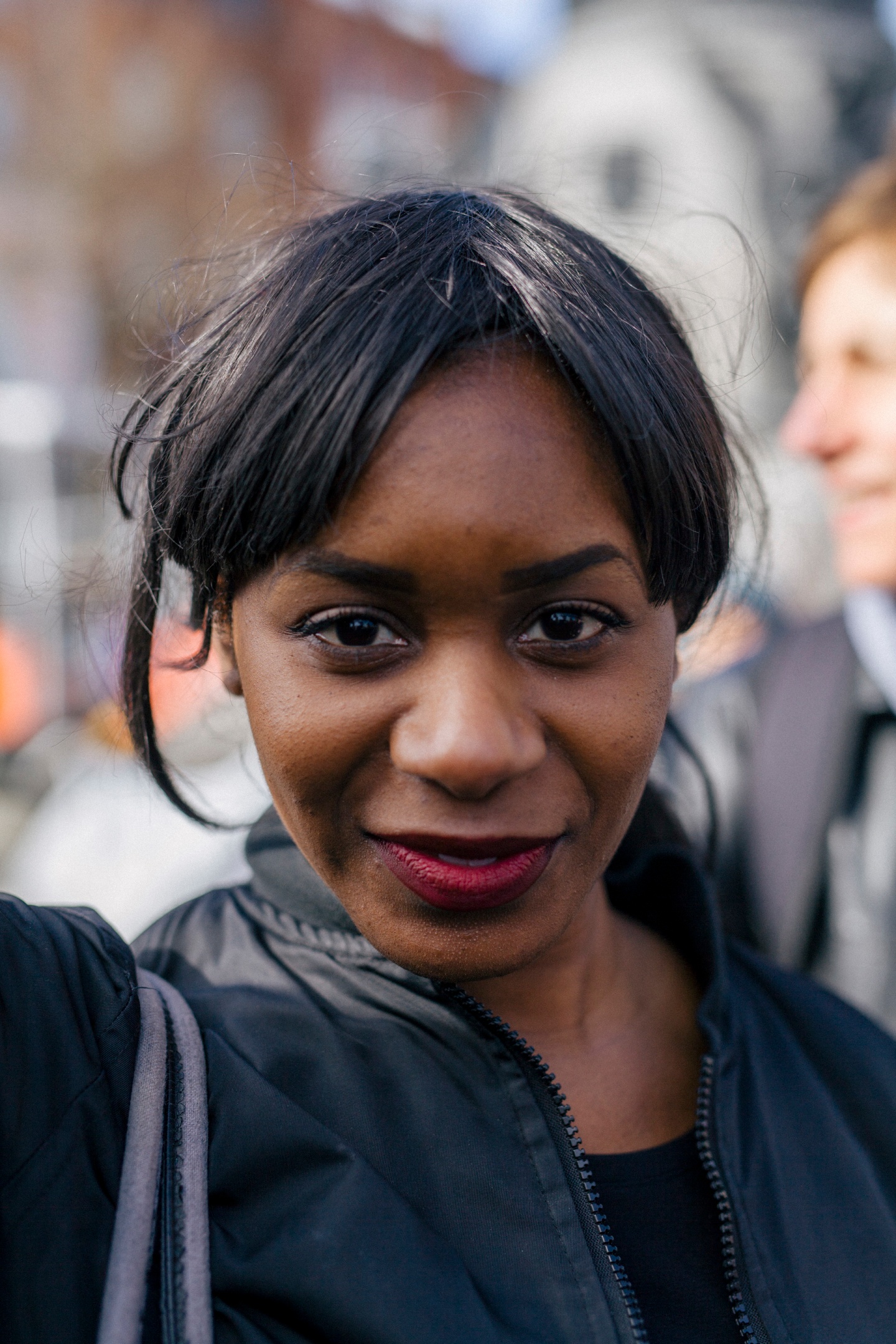 Filomena Kaguako attends the Strike 4 Repeal march in Dublin, Ireland, on March 8 2017
Filomena Kaguako attends the Strike 4 Repeal march in Dublin, Ireland, on March 8 2017
“The women in Ireland who have to get an abortion have to travel to England, they have to get one full day off work, they have to ruin their schedule and routine. Striking during the day and disturbing traffic has more of an impact than other protests. We're disturbing people's lives, the way they do things on a daily basis, to show them the disruption that the abortion laws are causing to women’s lives.”
Pilar Gonzalez, 35
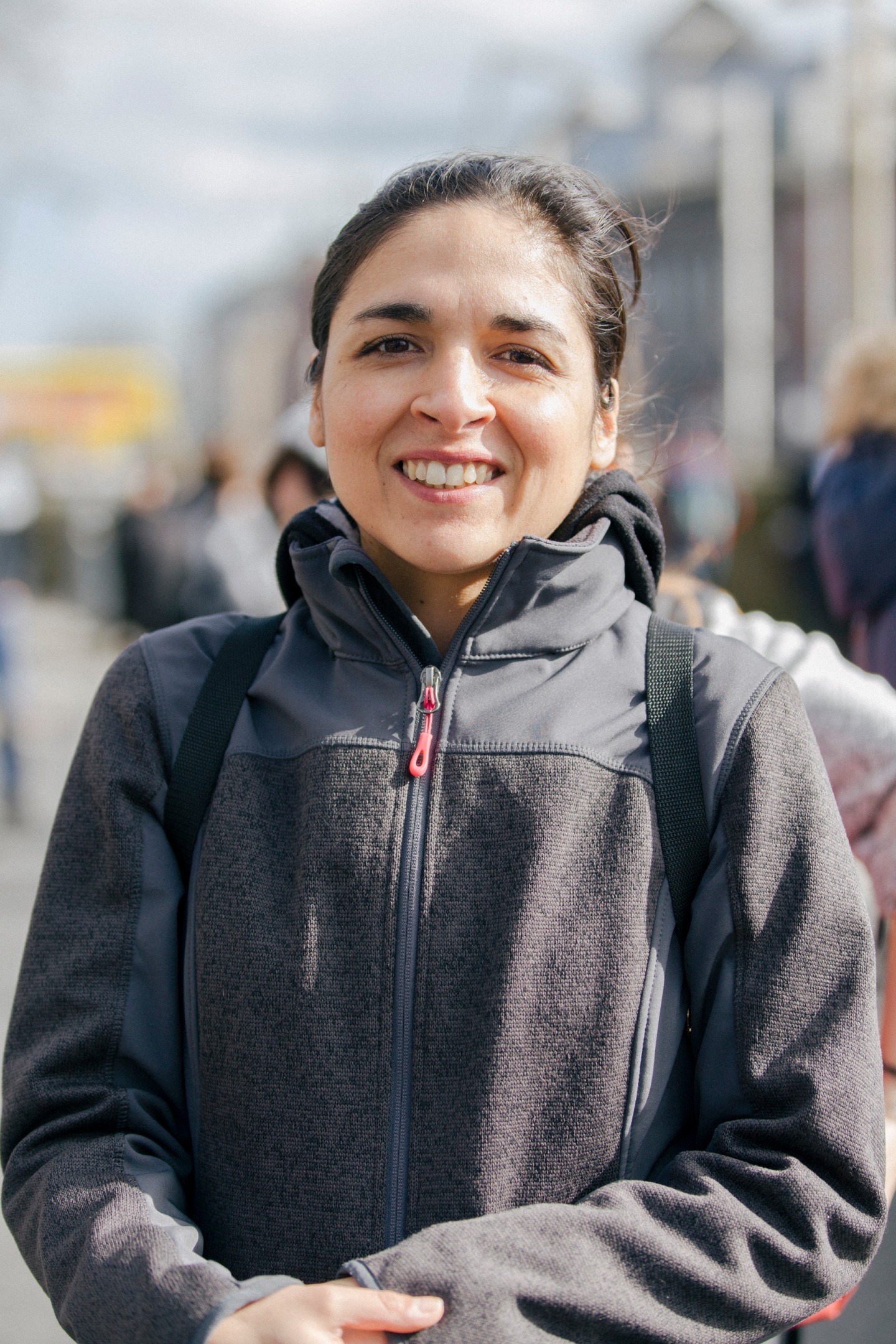 Pilar Gonzalez attends the Strike 4 Repeal march in Dublin, Ireland, on March 8 2017
Pilar Gonzalez attends the Strike 4 Repeal march in Dublin, Ireland, on March 8 2017
“I'm from Chile, but I've been living here in Ireland for 12 years. My niece and mother are here visiting so I invited them to the protest today. It’s a family event for us because [in] Chile, we went through a dictator, and really harsh times. There was a time there that you weren't allowed to speak up or voice your opinion. Growing up in a dictatorship really makes you see the value of democracy, the value of speaking out, and of protesting peacefully.”
 Protesters at the Strike 4 Repeal march in Dublin, Ireland, on March 8 2017
Protesters at the Strike 4 Repeal march in Dublin, Ireland, on March 8 2017
Dr. Kate Antosik-Parsons, 37
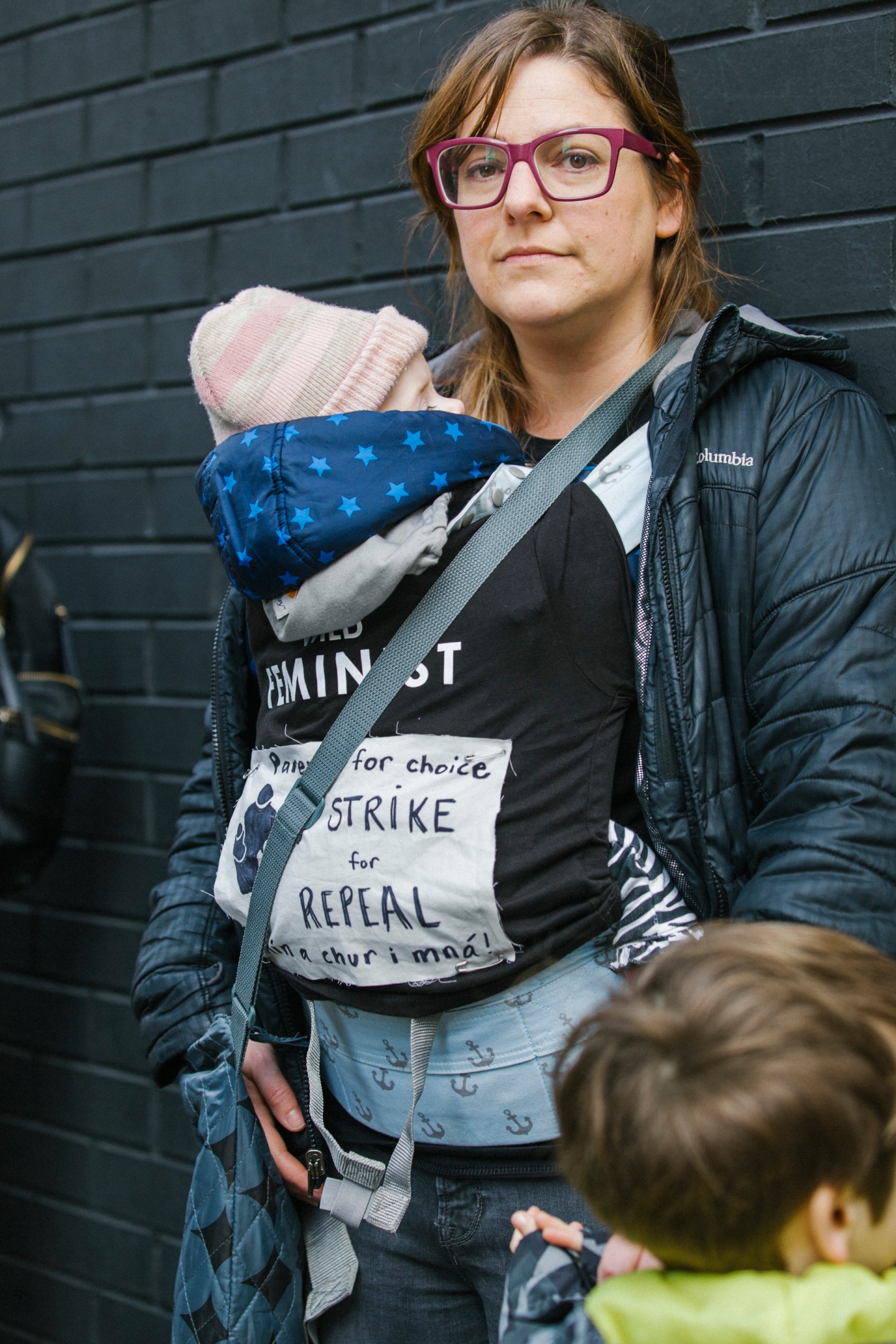 Dr. Kate Antosik-Parsons attends the Strike 4 Repeal march in Dublin, Ireland, on March 8 2017
Dr. Kate Antosik-Parsons attends the Strike 4 Repeal march in Dublin, Ireland, on March 8 2017
“I’ve had four pregnancies, I've had four children, so I'm fighting for my rights and for theirs as well. It's not just about women accessing abortions, but the Eighth Amendment also impacts informed consent, so the moment a woman is pregnant in Ireland she can be overruled about choices for her own body. So it’s not just about abortion but about any decision making. The Eighth Amendment has impacted my pregnancies: for example, on my first, I had a sweep without my permission — which is when they sweep the membranes to induce labor. That was certainly something that affected me and made me angry because I didn't consent.”
Maeve Foreman, 65, and Paula Ní Lanagán, 49
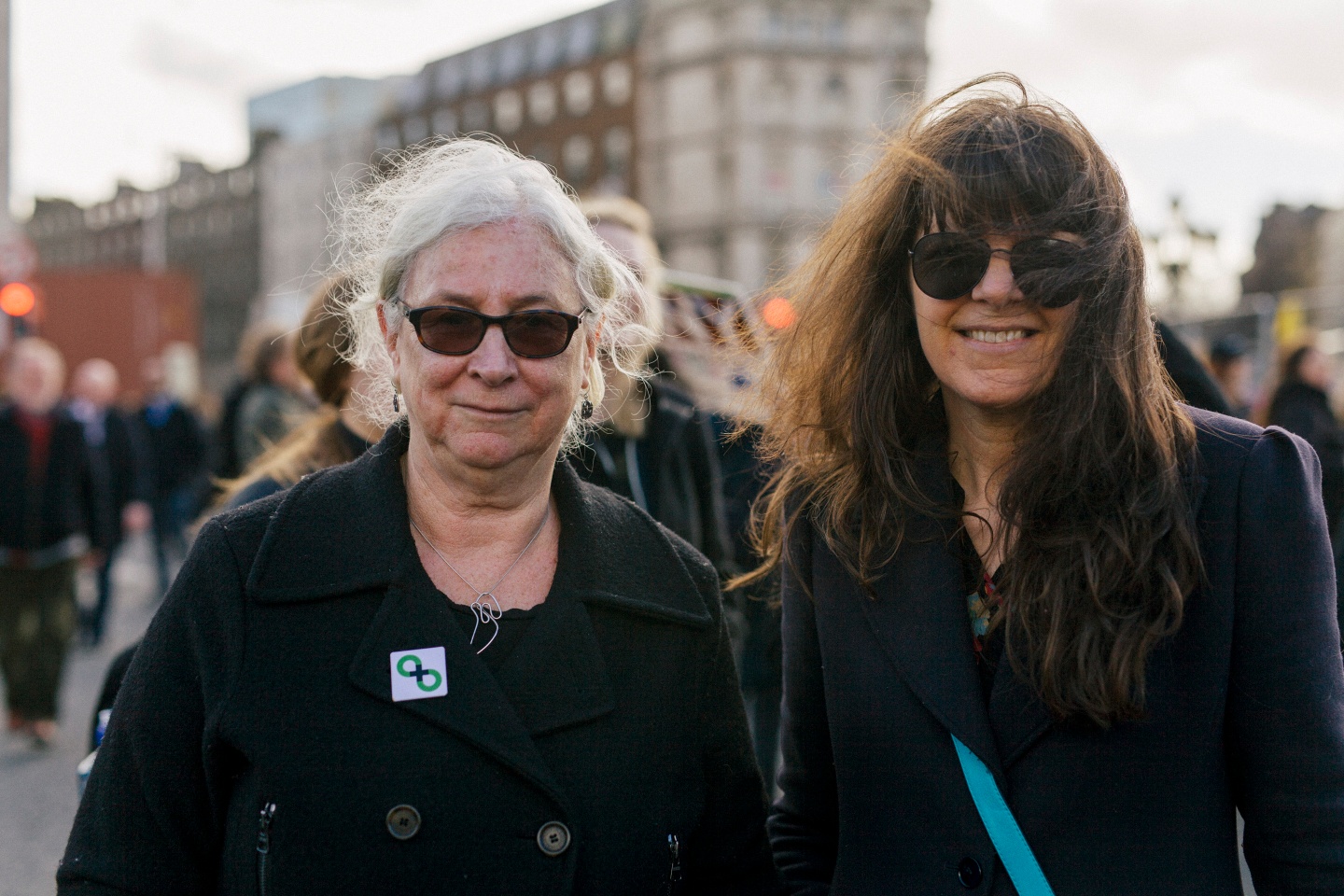 Maeve Foreman and Paula Ní Lanagán attend the Strike 4 Repeal march in Dublin, Ireland, on March 8 2017
Maeve Foreman and Paula Ní Lanagán attend the Strike 4 Repeal march in Dublin, Ireland, on March 8 2017
“I was part of the Anti-Amendment campaign, and I have [marched against it] from when it was first proposed in 1982. It’s depressing and frustrating to be marching about the same issue so many years later, but it’s great to see the whole issue coming alive again. Now it’s like there's a new surge of realization among people. It’s things like the Tuam Babies and all the scandals involving the church, people are saying it’s just enough.” —Maeve Foreman
“There's a new awareness that this is a really important issue and change has to happen. I think more men are involved now, they’re realizing that feminism and women’s rights are a concern to them as well, that they are part of it. Still, a lot of men are afraid of these type of events because there’s still kind of a taboo. The more men there are protesting and supporting reproductive rights, the better. It needs to become a concern for everybody.” —Paula Ní Lanagán
Sorcha Cullen, 22
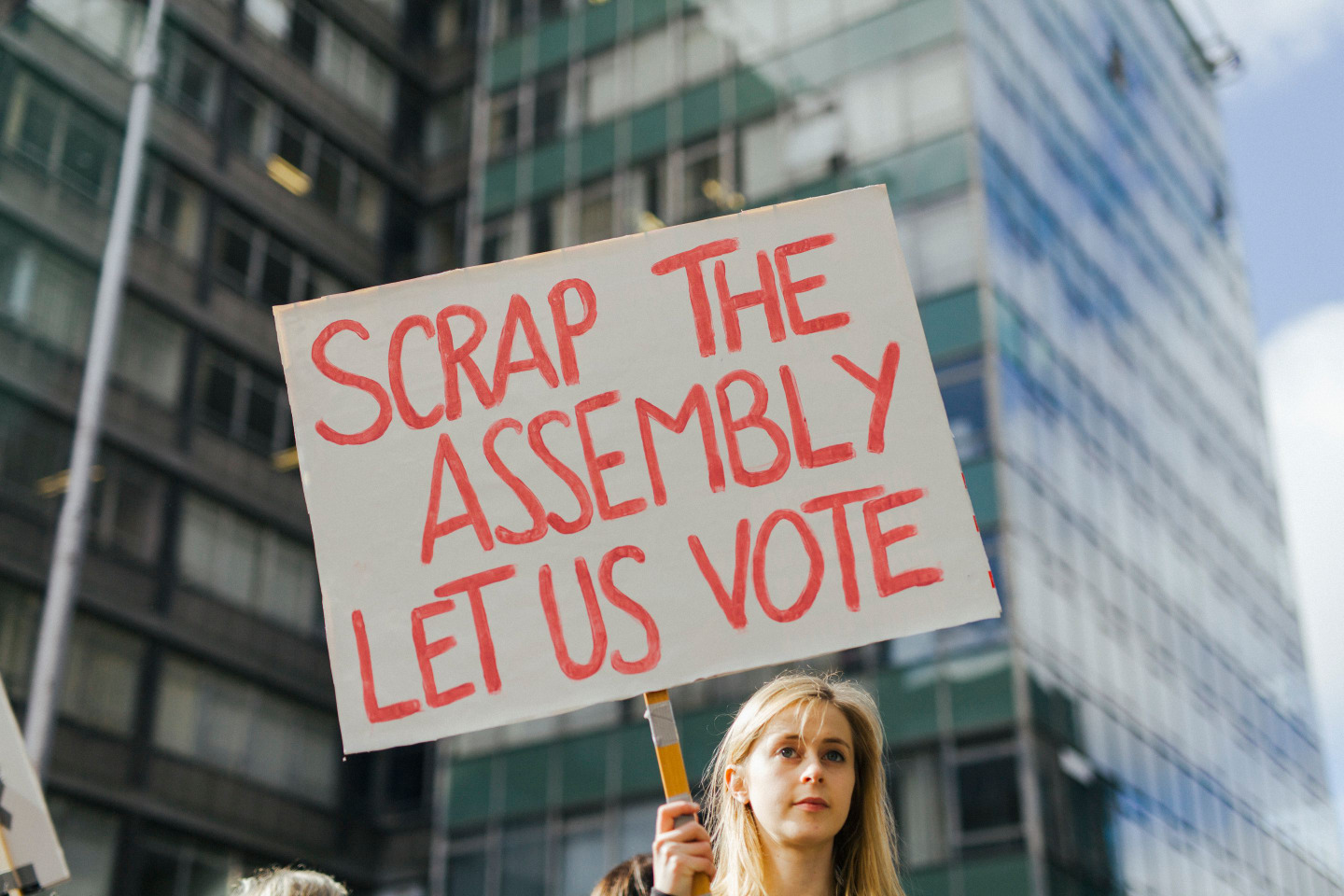 Sorcha Cullen attends the Strike 4 Repeal march in Dublin, Ireland, on March 8 2017
Sorcha Cullen attends the Strike 4 Repeal march in Dublin, Ireland, on March 8 2017
“The [Irish] constitution is meant to represent our fundamental beliefs, but if 30,000 people came out and marched in September against the Eighth Amendment, it’s clearly not a fundamental belief. It’s really concerning and bizarre that it’s in the constitution at all — I think that even [anti-choice] people should want it to be repealed. If the Eighth Amendment was repealed, there's already legislation such as the Protection of Life through Pregnancy Act, so Ireland’s abortion rights would still be the same, there would just be a chance to change it.”
 Protesters at the Strike 4 Repeal march in Dublin, Ireland, on March 8 2017
Protesters at the Strike 4 Repeal march in Dublin, Ireland, on March 8 2017

Joanne, 23
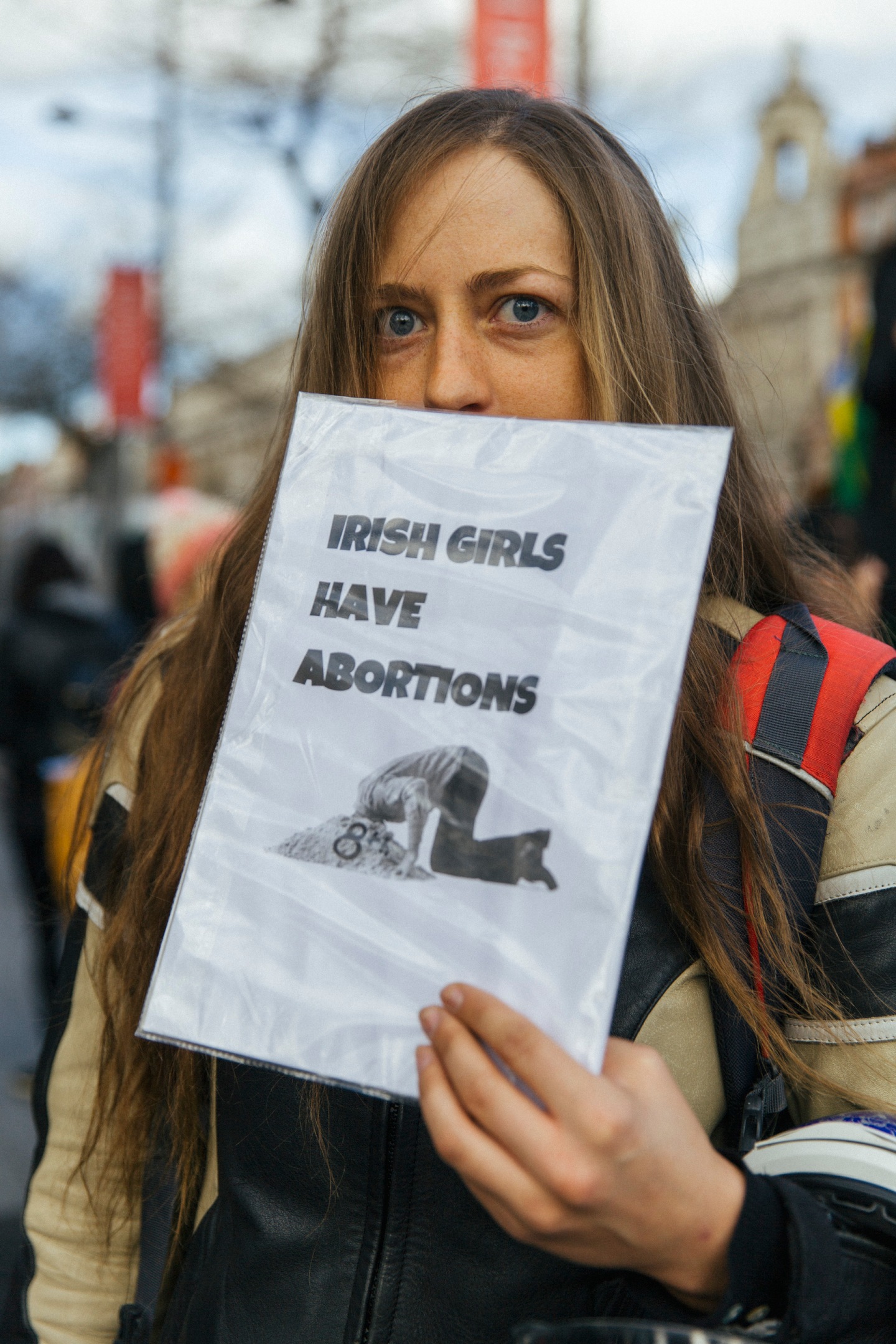 Joanne attends the Strike 4 Repeal march in Dublin, Ireland, on March 8 2017
Joanne attends the Strike 4 Repeal march in Dublin, Ireland, on March 8 2017
“I had an abortion. I had taken precautions, I was on the pill, I didn't want to be pregnant. Luckily I was in Russia when I found out, and there was no problem having an abortion over there. I was so frightened because of the culture that we have here, I was scared about who I could tell, there’s so much shame involved in the whole process.
"I like these protests because I can see that there are other people who have been in similar situations ,and that there is support for people like me. I don't like the idea that girls from Ireland have to go to England to have an abortion, it’s just pushing the issue away. Irish girls have abortions, it's a fact. The law that we have...there's no words for it. It's very emotional for me.”
Áine Brennan, 21, Dublin
 Áine Brennan attends the Strike 4 Repeal march in Dublin, Ireland, on March 8 2017
Áine Brennan attends the Strike 4 Repeal march in Dublin, Ireland, on March 8 2017

“Abortion should be available for Irish women, trans men, and everyone who needs one freely, safely, legally, and on demand. We need to trust anyone who might need an abortion, and that they should be able to have one.
“With Ireland being the country that it is, with its history of Catholicism and conservatism, it's been slow to change but it's vital that it does. I went to a Catholic primary and secondary school. It was damaging, they told us lies about women and abortions, horrible things about how it’s evil and wrong. Growing up in that...you can only be angry, that you've been lied to for your childhood, that the people in charge have been telling you barefaced lies.”
Ahlam Ahmed, 17
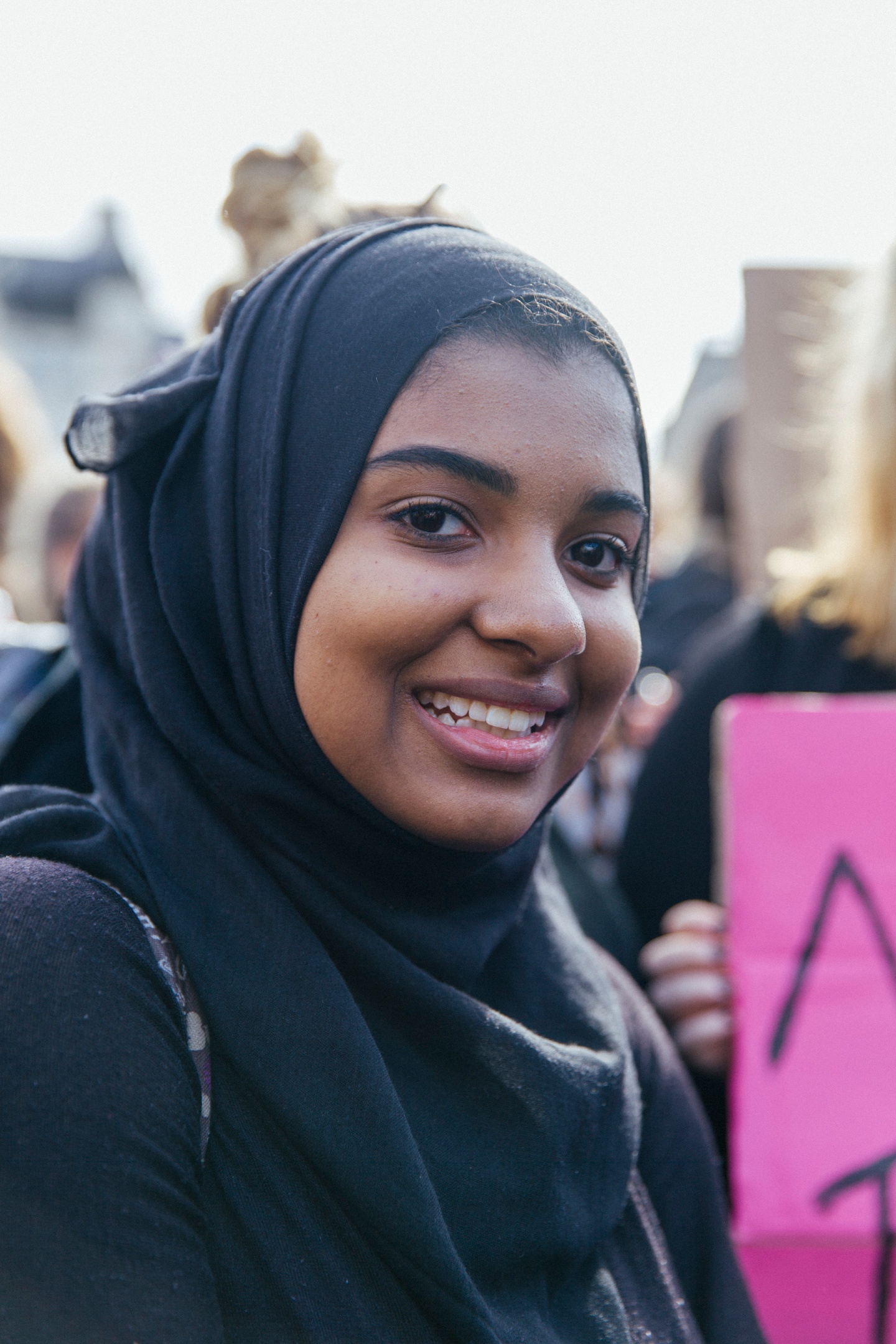 Ahlam Ahmed attends the Strike 4 Repeal march in Dublin, Ireland, on March 8 2017
Ahlam Ahmed attends the Strike 4 Repeal march in Dublin, Ireland, on March 8 2017
“I’m here because I believe that women should have the choice to decide what they want to do with their bodies and no one should tell them what they can do. Even though I can't vote I think that standing up for what I believe in is important. I can't ‘say’ it with a vote, but I can still have a say.”
Chérie Clarke, 34
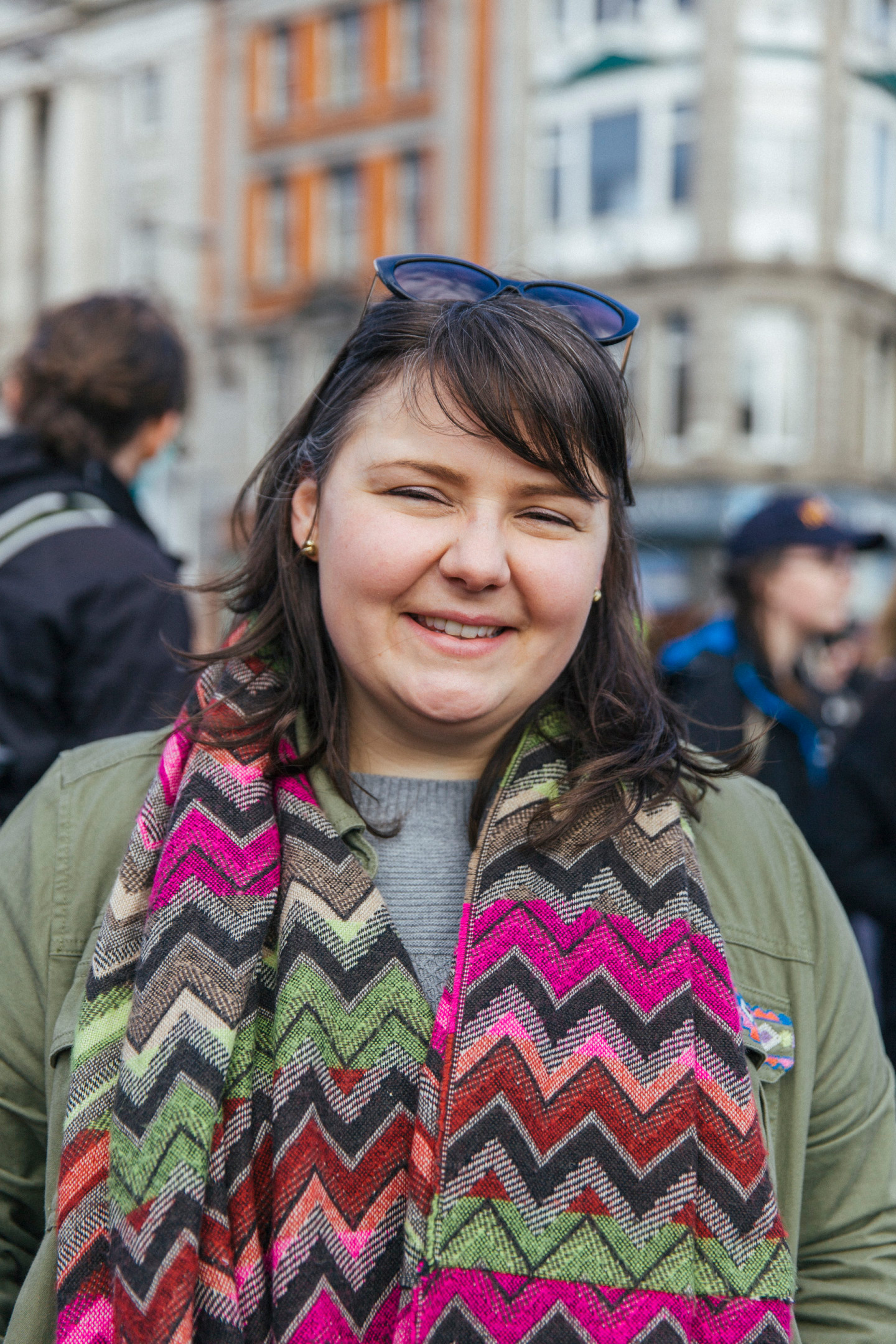 Chérie Clarke attends the Strike 4 Repeal march in Dublin, Ireland, on March 8 2017
Chérie Clarke attends the Strike 4 Repeal march in Dublin, Ireland, on March 8 2017
“I have a two-year-old boy and I think it’s really important for him to understand that women have the right to choice and equal rights. Having a kid made this issue more personal because it all became a bit more real. It's funny, people might think it’s the opposite way, when you've had a kid they expect you to be a bit more [anti-choice]. I’m not necessarily pro-abortion, but I’m pro-choice. Every woman has to be given that freedom.”
 Protesters at the Strike 4 Repeal march in Dublin, Ireland, on March 8 2017
Protesters at the Strike 4 Repeal march in Dublin, Ireland, on March 8 2017

Bess O'Connell, 16
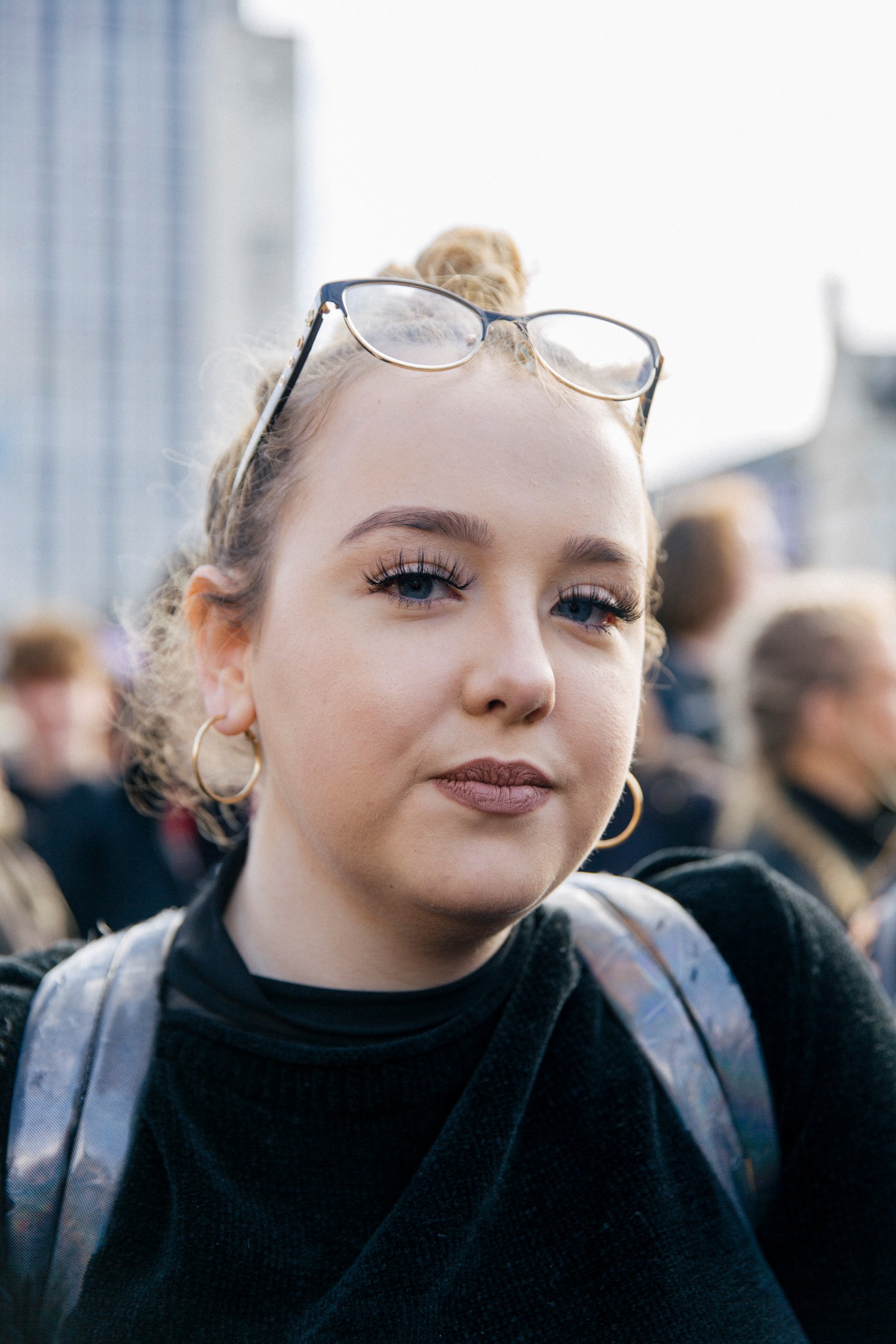 Bess O'Connell attends the Strike 4 Repeal march in Dublin, Ireland, on March 8 2017
Bess O'Connell attends the Strike 4 Repeal march in Dublin, Ireland, on March 8 2017
“We left school early today, we had a note to leave saying we went to a doctor’s appointment. We're in a Catholic school, so we can't really go to these things officially. A girl in our school tried to hand out black ribbons in solidarity and she was actually taken to the principal's office and told to shut everything down, because what she was doing ‘wasn’t right.’ In our school it’s very taboo.”
Jordan Kane, 18
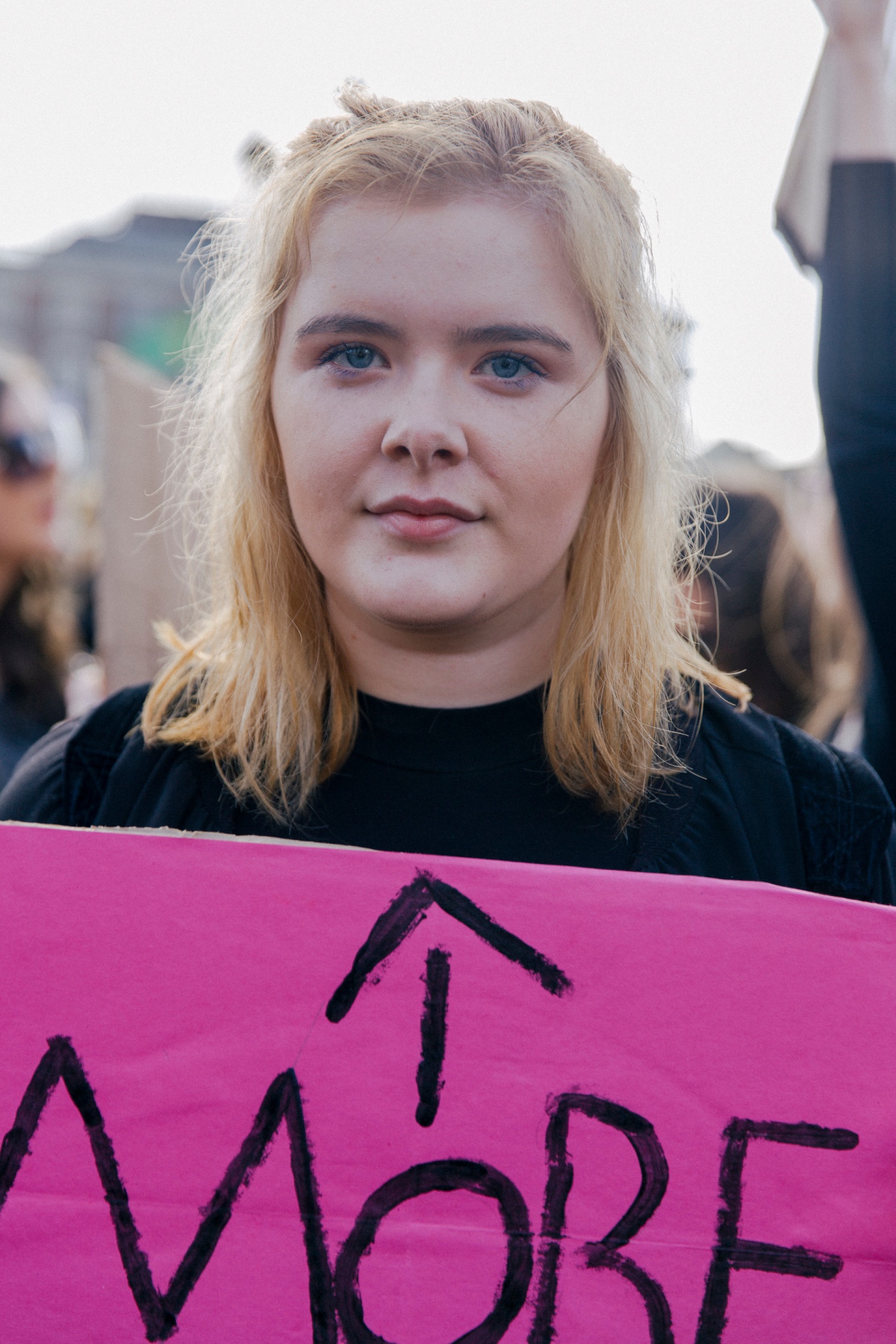 Jordan Kane attends the Strike 4 Repeal march in Dublin, Ireland, on March 8 2017
Jordan Kane attends the Strike 4 Repeal march in Dublin, Ireland, on March 8 2017
“I strongly believe in Repeal the Eighth. More than anything I believe that no matter what your stance is, a country should reflect its people. We should have a referendum on it, and the people should get their voice, no matter who is sitting in parliament.
“Our religion teacher says they teach from an unbiased perspective, but it's biased. We know what our teachers think, what our school thinks, what the board of education thinks. But that won't stop what we think at all. This is what we believe in.”
Nikita Chong, 26
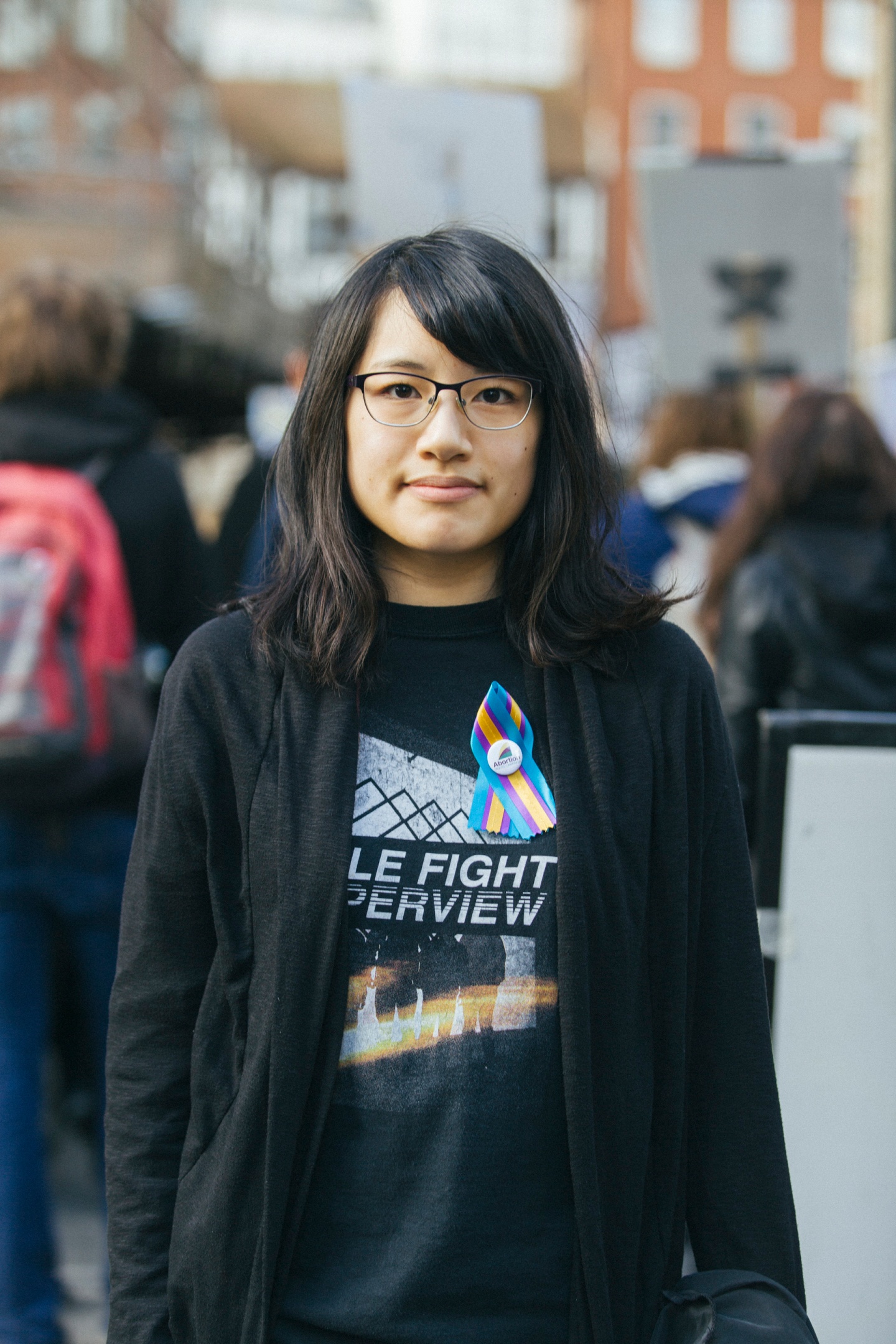 Nikita Chong attends the Strike 4 Repeal march in Dublin, Ireland, on March 8 2017
Nikita Chong attends the Strike 4 Repeal march in Dublin, Ireland, on March 8 2017
“I striked today because Ireland is one of the few E.U. countries that has a total ban on abortion. It makes me fearful for my own health, if I were ever to need such basic healthcare. To be honest though, I don't think this strike is that radical, because I got permission to take the day off. I think it would be more radical if I left work or had a walkout.”
Philippa Ryder, 55
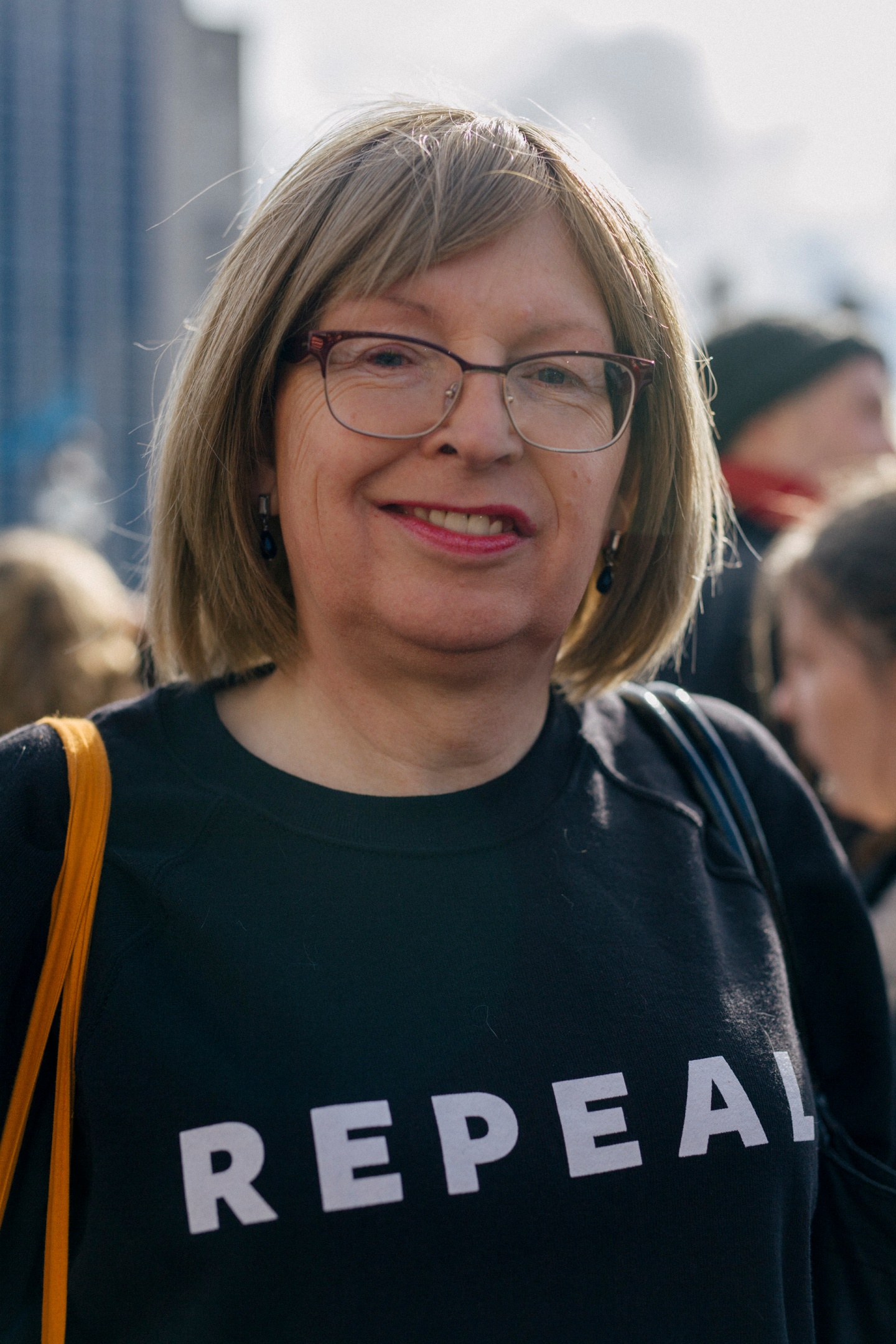 Philippa Ryder attends the Strike 4 Repeal march in Dublin, Ireland, on March 8 2017
Philippa Ryder attends the Strike 4 Repeal march in Dublin, Ireland, on March 8 2017
“I'm a great believer in bodily autonomy; it’s very personal to me. I believe in a women’s right to choose what happens to her body, and I just want to support International Women’s Day.
“I work for the government and I took a half day to participate and support as much as possible. I suppose it’s a bit ironic that I work for the government and I’m protesting the government, but we're all citizens of the state no matter who we work for. We all have a right to protest and a right to exercise our opinions, and that's exactly what I'm doing today.”
 Protesters at the Strike 4 Repeal march in Dublin, Ireland, on March 8 2017
Protesters at the Strike 4 Repeal march in Dublin, Ireland, on March 8 2017